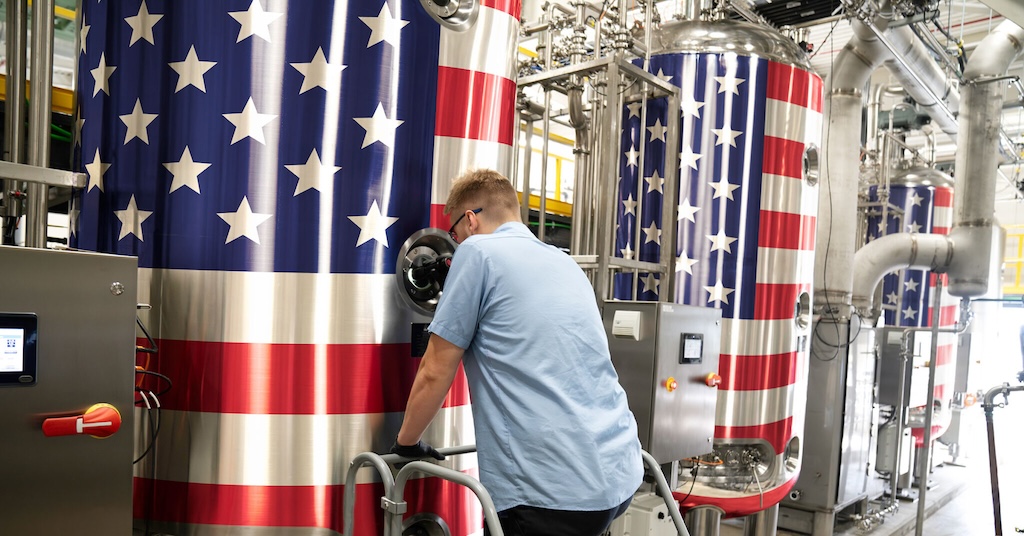Industries from agriculture to oil production rely on surfactants, chemical compounds that break down oils and dirt, making products like detergents, fertilizers, and cosmetics possible. But these surfactants have an ugly side. Their environmental impact is severe. Traditional surfactants are carbon-intensive to produce, slow to degrade, and laden with toxic chemicals harmful to ecosystems. Studies show that 60% of surfactants enter aquatic environments, contributing to ecological damage (RSC Publishing). Consumers and regulators alike are pushing for change. Yet, sustainable alternatives are hard to find.
Enter Locus Fermentation Solutions (Locus FS), a company producing bio-surfactants that replace these harmful chemicals, offering a cleaner, more sustainable alternative. Headquartered in Solon, Ohio, Locus FS is one of several companies betting on biology to fix an industrial problem that chemistry created. “Chemical surfactants are highly carbon-intensive to produce,” said Teresa DeJohn, Director of Marketing & PR at Locus FS, “They require high dosage rates and can often have toxicity issues, being toxic to humans and the environment.” The problem goes deeper than just toxicity. Some surfactants and bio-based surfactants are made from palm oil, and are therefore linked to 7% of global deforestation (RSC Publishing). As DeJohn pointed out, while palm-based surfactants seemed like a greener option at first, they introduced their own set of issues, primarily around deforestation and carbon emissions. “Palm deforestation became a really big challenge,” she said, noting that “the environmental damage from palm oil is still massive.”
That’s where bio-surfactants come in. Using a fermentation process, Locus FS produces non-GMO bio-surfactants that are sustainable and highly effective across multiple industries, including agriculture, personal care, and oil & gas. These bio-surfactants offer a revolutionary change, completely free of palm oil, biodegradable, and capable of outperforming traditional chemicals at lower doses. Bio-surfactants are not new. They’ve been around for years, but producing them at scale has been a significant hurdle. That’s what sets Locus FS apart. “Bio-surfactants can be used in all these different industries. We’ve tested them over chemical surfactants, and they outperform in multiple ways,” DeJohn said. Locus FS developed proprietary fermentation technologies that make bio-surfactants scalable and cost-effective for industrial use. The company recently became the first and only supplier approved by the EPA to produce bio-surfactants at commercial scale in the U.S. through expanded TSCA registration.

Locus FS’s glycolipids have TSCA certification for all industrial and consumer applications
This shift from chemical to biological is more than a greenwashing trend, with new regulations in place it’s rapidly becoming an economic necessity. Companies across sectors are scrambling to meet new regulatory standards. For example, California’s Proposition 65 mandates that products containing toxic chemicals display a warning label. Traditional surfactants often trigger these warnings. By contrast, Locus FS’s bio-surfactants are free of these harmful additives. “Our bio-surfactants are certified 100% biobased and don’t require a Prop 65 label as well as any other trace chemical warnings,” DeJohn explained. The ability to scale bio-surfactants means they can be deployed in high-impact sectors, like oil & gas. Here, the environmental stakes are particularly high. Studies show that switching to bio-surfactants can reduce the carbon footprint of oil extraction by 30% (RSC Publishing). Last year, Locus’ bio-surfactants became the first technology certified to lower the carbon intensity of oil & gas production, while improving recovery.
The sheer versatility of these compounds makes them a game-changer, one that could ripple across industries. “We serve many different industries; the multifunctionality of bio-surfactants and our ability to customize their use in a multitude of applications makes them industry-agnostic,” said DeJohn.
The appeal of Locus FS’s bio-surfactants goes beyond environmental benefits. They offer a compelling economic argument. “Everyone says they want to go green from a sustainability standpoint, but the reality is they’re not going to do that if it doesn’t make them green money,” DeJohn pointed out with refreshing honesty. The company’s products don’t just match traditional surfactants in performance, they often exceed them. For example, Locus FS’s bio-surfactants are 3.1 nanometers in size, significantly smaller than their chemical counterparts (which can be 100 nanometers), allowing for better penetration and efficiency. Locus FS has taken a proactive approach, launching multiple divisions tailored to different markets, from personal care to agriculture. In agriculture, bio-surfactants and microbes are proving particularly useful in enhancing soil fertility and nutrient uptake by the plant, while reducing soil compaction and runoff of harmful chemical fertilizers – ultimately improving crop production. Their agricultural products also help farmers reduce carbon emissions, which in turn allows them to monetize sustainability through carbon credits. This ability to “make green money” by adopting greener products is a key selling point.
“Farmers who use our products are reducing their carbon emissions, so they can actually monetize that and get carbon credits,” DeJohn emphasized. This intersection of sustainability and profitability is where Locus FS excels. DeJohn is clear-eyed about the challenges ahead, particularly in scaling regulatory hurdles. But in some cases, those hurdles are opening doors. Stringent regulations around hazardous chemicals are pushing companies to reformulate products, giving bio-surfactants a foothold in the market. “The increase in regulatory restrictions across industries has actually helped drive adoption of bio-surfactants,” DeJohn said, pointing to California and New York’s strict standards on 1,4-dioxane restrictions in cleaning products.
The message from Locus FS is clear, sustainability and profitability are not mutually exclusive. In fact, they might just be two sides of the same coin. As DeJohn put it, “Proven efficacy is the biggest driver, Being green or sustainable is not enough. You have to actually prove that you can have performance that is at least equal, if not better, than a petrochemical alternative.” The future, it seems, belongs to those who can do more with less, less carbon, less waste, and fewer chemicals. And Locus FS is proving it can be done.







